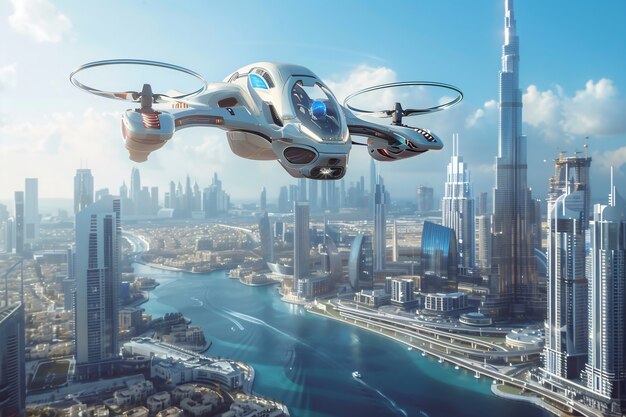
Sponsored article
Commercial aviation stands on the cusp of a groundbreaking revolution with the rise of autonomous aircraft. This article explores the technology that powers these self-automated machines, the potential advantages they present, their implications, and how they are poised to reshape the future of the airline industry. Join us as we take a deep dive into these tech-integrated horizons, examining the potential scenery of our skies in the not-so-distant future.
In the realm of commercial aviation, the implementation of autonomous technology is on the rise, underpinned by the advancements in the field of AI in aviation. AI, the linchpin of this futuristic aircraft technology, eases the process of managing complex systems and making real-time decisions, thereby making autonomous flights a reality. Coupled with AI, advanced navigation systems are equally imperative in ensuring safe, autonomous flights by spotting potential obstacles in real-time and adjusting flight paths accordingly. The roles of ground control systems cannot be overstated as they provide a seamless communication loop between autonomous aircrafts and the control tower, offering a reliable back-up mechanism to handle any unforeseen emergencies. As this integration of technology continues to mature, autonomous aircrafts will undoubtedly become a game-changer in the commercial aviation industry.
The benefits of autonomous aircraft in commercial aviation are promising and manifold. Safety, a paramount concern in aviation, could be significantly enhanced with automation reducing human error. In terms of efficiency, autonomous aircraft are scheduled optimally, cutting idle time and enhancing service reliability. Reflecting the eco-friendly trend, these intelligent machines are likely to consume less fuel, contributing to an overall decrease in aviation carbon footprint. Cost reduction, another profound benefit, taps into labor savings as well as efficient maintenance and operation. Yet, with these advantages, potential implications must not be overlooked. The transformation towards full autonomy faces challenges, such as ensuring cybersecurity and dealing with complex legal and regulatory hurdles. Nevertheless, the progressive shift towards autonomous aircraft holds an exciting potential for reshaping commercial aviation.
The advent of autonomous aircraft announces a seismic impact on commercial aviation, marking a significant airline industry change bound to alter the future of air travel. This revolution could deliver amplified efficiency, safety, and environmental sustainability, setting new stages in the aviation narrative. Broadly, it presents the opportunity to redefine routes, following demand rather than the current, largely hub-and-spoke model. Passenger experience is on the brink of transformation too, with these technological advancements promising smoother, more reliable air travel, potentially unburdened by common, human-induced disruptions. The power of autonomous aircraft to rewrite the rules of the skies cannot be overlooked.